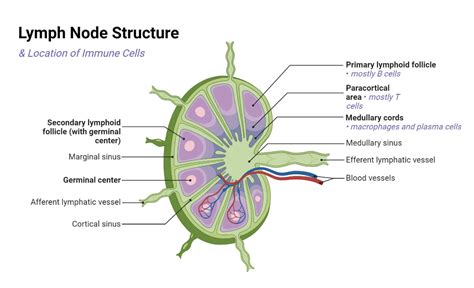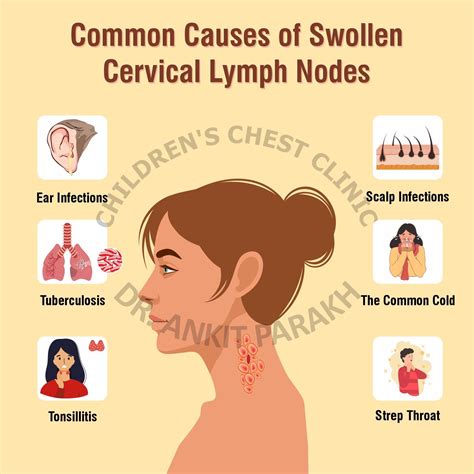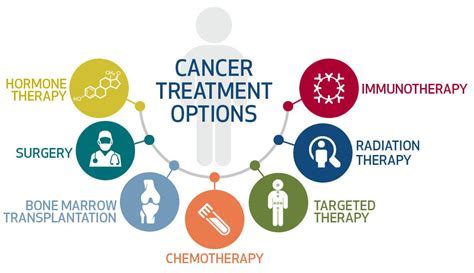Intro
Discover causes and treatments for swollen lymph nodes in neck, including infections, cancers, and autoimmune disorders, and learn about symptoms, diagnosis, and management options for neck lymphadenopathy.
The human body is a complex system, and sometimes it can be quite puzzling when we experience unusual symptoms. One such symptom that can be alarming is swollen lymph nodes in the neck. Lymph nodes are an essential part of our immune system, and when they become swollen, it can be a sign of an underlying issue. In this article, we will delve into the world of swollen lymph nodes in the neck, exploring the possible causes, symptoms, and treatment options.
Swollen lymph nodes can be a cause for concern, but it's essential to understand that they are a natural response to infection or inflammation. The lymphatic system is a network of vessels, tissues, and organs that help defend the body against infection and disease. When the body detects a foreign substance or infection, the lymph nodes become activated, and they start to produce immune cells to fight off the invader. This activation can cause the lymph nodes to swell, leading to a range of symptoms.
The neck is a common area where swollen lymph nodes can occur, and it's essential to be aware of the possible causes. Some of the most common reasons for swollen lymph nodes in the neck include viral infections, such as the common cold or flu, bacterial infections, such as strep throat or tuberculosis, and other conditions like mononucleosis or lymphoma. In some cases, swollen lymph nodes can be a sign of a more serious underlying condition, making it crucial to seek medical attention if the symptoms persist or worsen over time.
Understanding Lymph Nodes

Functions of Lymph Nodes
The lymph nodes have several functions, including: * Filtering lymph fluid to remove bacteria, viruses, and other foreign substances * Producing immune cells, such as lymphocytes, to fight off infection * Storing lymphocytes and other immune cells * Helping to activate the immune system in response to infection or inflammationCauses of Swollen Lymph Nodes in the Neck

Symptoms of Swollen Lymph Nodes
The symptoms of swollen lymph nodes can vary depending on the underlying cause. Some common symptoms include: * Swelling or tenderness in the neck * Pain or discomfort in the neck * Fever * Fatigue * Sore throat * Runny nose or congestionTreatment Options for Swollen Lymph Nodes

Home Remedies for Swollen Lymph Nodes
There are several home remedies that can help to reduce the symptoms of swollen lymph nodes. Some of these remedies include: * Applying a warm compress to the affected area to reduce swelling and discomfort * Drinking plenty of fluids to stay hydrated and help the body fight off infection * Getting plenty of rest to help the body recover from illness * Practicing good hygiene, such as washing hands regularly, to reduce the risk of infectionPrevention of Swollen Lymph Nodes

Risk Factors for Swollen Lymph Nodes
There are several risk factors that can increase the likelihood of developing swollen lymph nodes. Some of these risk factors include: * Weakened immune system * History of infections or illnesses * Family history of lymphoma or other conditions that affect the immune system * Exposure to toxins or chemicalsComplications of Swollen Lymph Nodes

When to Seek Medical Attention
It's essential to seek medical attention if the symptoms of swollen lymph nodes persist or worsen over time. Some signs that it's time to seek medical attention include: * Severe pain or discomfort in the neck * Fever that is high or persistent * Swelling that is severe or worsening * Difficulty swallowing or breathing * Weakness or fatigue that is severe or worseningWhat are the symptoms of swollen lymph nodes in the neck?
+The symptoms of swollen lymph nodes in the neck can include swelling or tenderness in the neck, pain or discomfort in the neck, fever, fatigue, sore throat, and runny nose or congestion.
What are the possible causes of swollen lymph nodes in the neck?
+The possible causes of swollen lymph nodes in the neck can include viral infections, bacterial infections, mononucleosis, lymphoma, and other conditions such as rheumatoid arthritis or lupus.
How can I prevent swollen lymph nodes in the neck?
+There are several ways to prevent swollen lymph nodes, including practicing good hygiene, getting vaccinated against common infections, avoiding close contact with people who are sick, eating a healthy diet, and getting regular exercise to help boost the immune system.
When should I seek medical attention for swollen lymph nodes in the neck?
+It's essential to seek medical attention if the symptoms of swollen lymph nodes persist or worsen over time. Some signs that it's time to seek medical attention include severe pain or discomfort in the neck, fever that is high or persistent, swelling that is severe or worsening, difficulty swallowing or breathing, and weakness or fatigue that is severe or worsening.
What are the possible complications of swollen lymph nodes in the neck?
+In some cases, swollen lymph nodes can lead to complications, including abscesses or pockets of pus that can form in the lymph nodes, infection that can spread to other parts of the body, lymphoma or other types of cancer that can develop in the lymph nodes, and scarring or damage to the lymph nodes or surrounding tissue.
As we conclude our exploration of swollen lymph nodes in the neck, it's essential to remember that these symptoms can be a sign of an underlying issue. By understanding the possible causes, symptoms, and treatment options, we can take the first step towards seeking medical attention and getting the help we need. If you have any questions or concerns about swollen lymph nodes, don't hesitate to reach out to a medical professional. Share this article with someone you know who may be experiencing similar symptoms, and let's work together to raise awareness about the importance of lymph node health.
